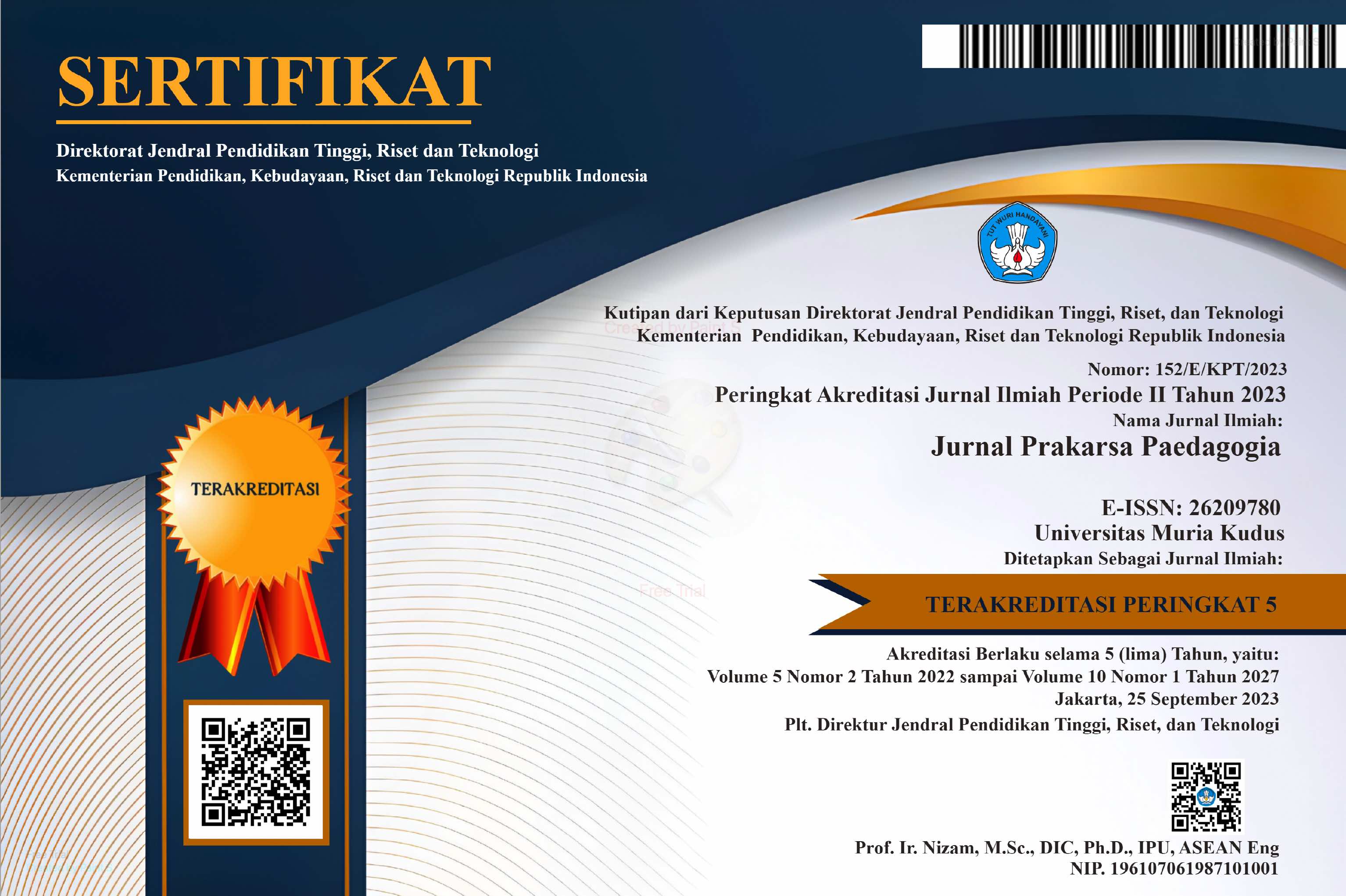Improving Students’ Writing Ability Through The Use Of Instagram Caption
Abstract
This study aims to improve the students’ writing ability of ten grade in vocational high school Manbaul Huda Pati through the use of Instagram caption. This research is motivated by students’ anxiety in learning English, especialy writing. The purpose of this study is to know how is Instagram caption as a media applied and improve students writing skill. The subject of this study was 27 students in X TBSM of SMK Manbaul Huda Pati. The study used classroom research design. In this study, the researcher used Instagram caption because social media is closer to students so it will be easier to apply it in learning activities. In this case, the media was used to attract students in writing English in the class. There are several steps in this research, namely: pre-elimination test, conducting the cycles starting with planning, acting, observing, reflecting, and post-test. The result of the study showed that there were improvements of students’ writing ability after being taught using Instagram caption as a media. It was proved by the improvement between the students’ score of preliminary test and cycle 2 post-test. The average of preliminary test was 68.89, while the average of cycle 2 post-test was 79.81. Based on the result above, it can be concluded that this media gave positive contribution to the improvement of the students’ writing ability. This media is beneficial to help the students to learn writing English in more enjoyable way.
Keywords
Full Text:
397-401 (Bahasa Indonesia)References
Aqib, Zaenal. 2009. Classroom Action Research. Bandung: Yrama Widya
Burns, A. (2010). Doing Action Research in English Language Learning. New York: Roudledge.
Carr, W., & S, K. (1986). Becoming Critical: Education, Knowledge and Action Research. Lewes: Falmer.
Hornby, A.S. (1986). Oxford Advantage’s Dictionary of Current English. Oxford University Press, New York.3ippo
Huyen, N. T. T, & Nga, K. T. T. (2003). “The Effectiveness of Learning Vocabulary through Games”. Asian EFL Journal, Vol.5 No.4. Retrieved on January 1, 2018 from http://asian- efl-journal.com/1493/quarterly-journal/2003/12/learning-vocabularythrough-gamesthe-effectiveness-of-learning-vocabulary-through-games/
Keraf, G. (2009).Tata Bahasa Indonesia. Ende: Nusa Indah.
Kurnia, D., Taufiq, M., & Silawati, E. (2018). Analisis Capaian Perkembangan Bahasa Anak Usia Dini Dalam Kegiatan Pembelajaran Dengan Metode Learning Based Resources. Cakrawala Dini: Jurnal Pendidikan Anak Usia Dini, 6(2). https://doi.org/10.17509/cd.v6i2.10520.
Sapir E. (1921). Language: An Introduction to the Study of Speech: Bibliografic Record
Tarigan, H. G (2011). Pengajaran kosakata. Bandung: Angkasa
Weigle, S. C. (2002). Assessing Writing. Cambridge: Cambridge University Press.
Weigle, S. C. (2002). Assessing Writing. Cambridge: Cambridge University Press
DOI: https://doi.org/10.24176/jpp.v4i2.9001
Refbacks
- There are currently no refbacks.
Copyright (c) 2022 Jurnal Prakarsa Paedagogia

This work is licensed under a Creative Commons Attribution-NonCommercial-ShareAlike 4.0 International License.
Visitors of the Paedagogia Prakarsa Journal Status
Country of Origin of Visitors:
Jurnal Prakarsa Paedagogia dari Fakultas Keguruan dan Ilmu Pendidikan Universitas Muria Kudus is licensed under a Creative Commons Attribution 4.0 International License.
Dedicated to:







